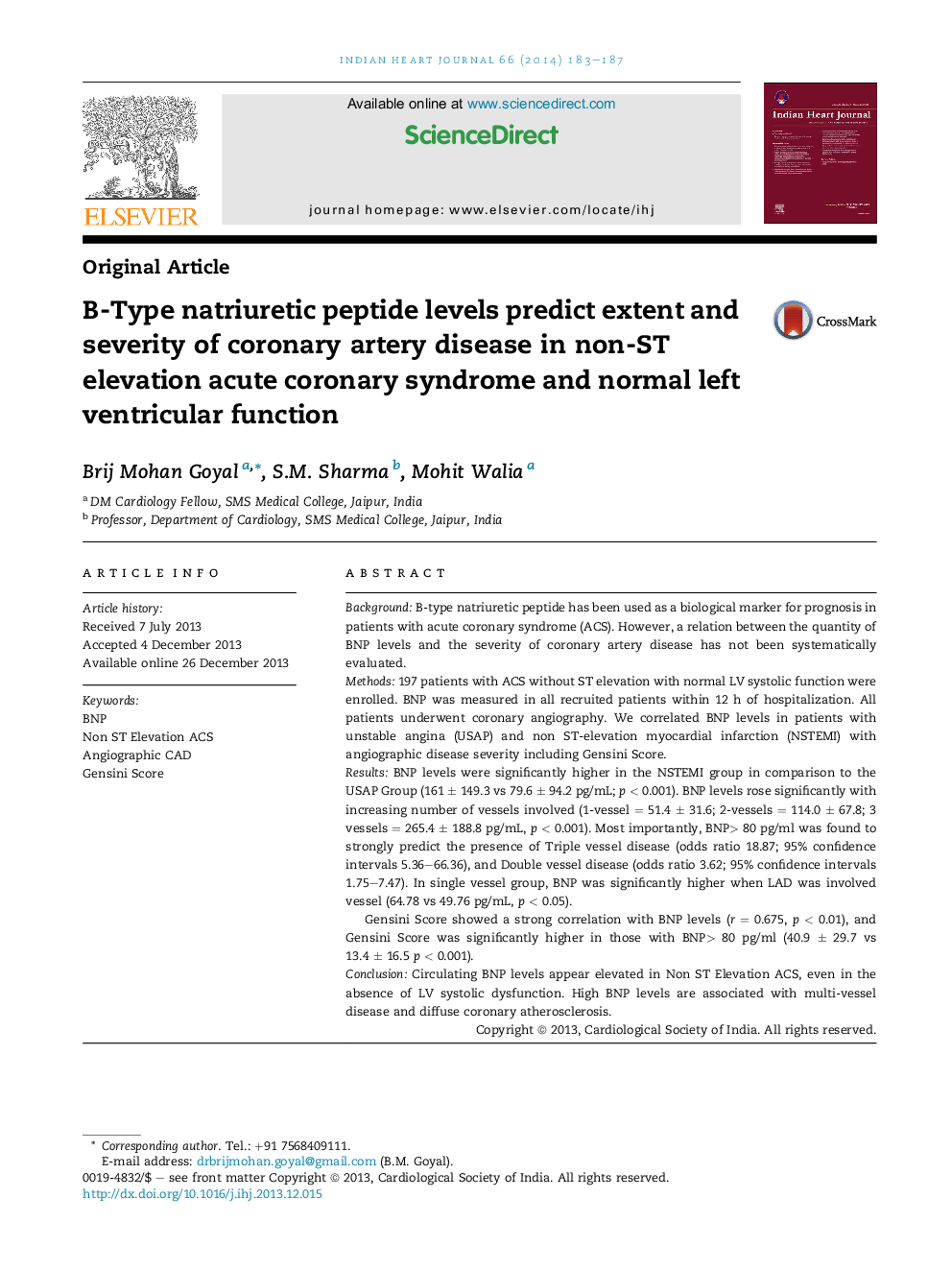| Article ID | Journal | Published Year | Pages | File Type |
|---|---|---|---|---|
| 2927539 | Indian Heart Journal | 2014 | 5 Pages |
BackgroundB-type natriuretic peptide has been used as a biological marker for prognosis in patients with acute coronary syndrome (ACS). However, a relation between the quantity of BNP levels and the severity of coronary artery disease has not been systematically evaluated.Methods197 patients with ACS without ST elevation with normal LV systolic function were enrolled. BNP was measured in all recruited patients within 12 h of hospitalization. All patients underwent coronary angiography. We correlated BNP levels in patients with unstable angina (USAP) and non ST-elevation myocardial infarction (NSTEMI) with angiographic disease severity including Gensini Score.ResultsBNP levels were significantly higher in the NSTEMI group in comparison to the USAP Group (161 ± 149.3 vs 79.6 ± 94.2 pg/mL; p < 0.001). BNP levels rose significantly with increasing number of vessels involved (1-vessel = 51.4 ± 31.6; 2-vessels = 114.0 ± 67.8; 3 vessels = 265.4 ± 188.8 pg/mL, p < 0.001). Most importantly, BNP> 80 pg/ml was found to strongly predict the presence of Triple vessel disease (odds ratio 18.87; 95% confidence intervals 5.36–66.36), and Double vessel disease (odds ratio 3.62; 95% confidence intervals 1.75–7.47). In single vessel group, BNP was significantly higher when LAD was involved vessel (64.78 vs 49.76 pg/mL, p < 0.05).Gensini Score showed a strong correlation with BNP levels (r = 0.675, p < 0.01), and Gensini Score was significantly higher in those with BNP> 80 pg/ml (40.9 ± 29.7 vs 13.4 ± 16.5 p < 0.001).ConclusionCirculating BNP levels appear elevated in Non ST Elevation ACS, even in the absence of LV systolic dysfunction. High BNP levels are associated with multi-vessel disease and diffuse coronary atherosclerosis.
